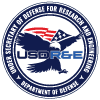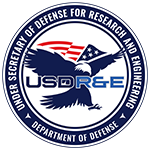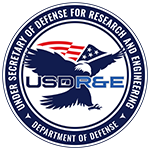Academic Leaders, DoD Discuss Research Innovation Partnerships
NEWS RELEASE: August 12, 2024
Dr. Binda Nair, director of Basic Research in the Office of Under Secretary of Defense for Research and Engineering, hosted a panel on “University Industry Partners,” where experts in academia discussed the progress and status on the Department of Defense’s science and technologies programs within academic institutions across the nation at the National Defense Industrial Association’s Emerging Technologies conference in Aug. 9 in Washington, D.C.
Panelists included Dr. Teresa Meyer, vice president of research at Carnegie Mellon University; Dr. Mark Lewis, president and CEO of Purdue Applied Research Institute; Dr. Jeff Rhoads, vice president of research at the University of Notre Dame; and Dr. Rodney Bowersox, the senior associate dean for research for Texas A&M University. Each speaker is involved in their respective institution’s research and national security programs.
“DoD puts about eight percent of that federal budget into physical sciences and what we find is, despite being only eight percent, we have the most patents coming out of that investment and we have the highest citation count,” said Nair. “With the investments we make in our universities, we are getting those direction changing ideas being developed.”
Speakers discussed how the collaborative approach the DoD has taken in working with universities and how the partnership has been able to advance models that are effective.
Lewis said that despite ambitious adversaries making S&T advancements, “one area they are not advancing in is their universities.” He added that “if you look across the board, the plurality of international students who study in a country other than their own come to the United States.”
The panel also discussed the role universities play in supporting national security. An example is that DoD is the largest single sponsor for Purdue to work on campus. Lewis told the audience that universities partners need to embrace the mission in supporting national defense. By working to support national defense, they must be willing to handle the complexity associated with doing so.
A program contributing to this collaboration is the Multi-Disciplinary University Research Initiative (MURI), which has resulted in significant capabilities for our military forces and opened up entirely new lines of research.
Despite the progress made, Bowersox added that challenges still exist and more each could do to ensure national security.
“Everybody here is stepping up to invest in the science and technology issues facing our country. We are competing with our near peer competitors and they are moving fast. We need to pick up the pace,” he said.
Office of the Under Secretary of Defense,
Research and Engineering (OUSD(R&E))
3030 Defense Pentagon, Washington, DC 20301-3030
Contact Us
Contact Us
Information for the USD(R&E):
Contact OUSD(R&E) Staff
Social Media: @DoDCTO on Twitter
For website issues: Contact Webmaster


